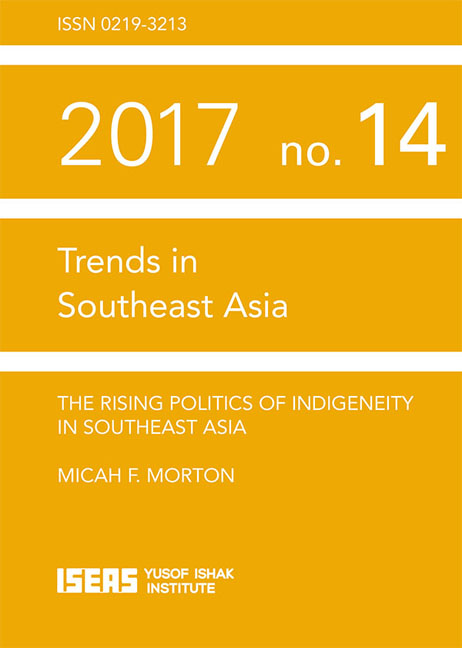The Rising Politics of Indigeneity in Southeast Asia
Published online by Cambridge University Press: 12 March 2019
Summary
EXECUTIVE SUMMARY
• Amidst rising trends of “nativism” and “xenophobia” throughout Southeast Asia, a related yet distinct movement framed around altogether different notions of “Indigeneity” is occurring among various long-oppressed ethnic minorities.
• These groups and their distinct claims of Indigeneity and linkages with the regional and global Indigenous movements are all arising in response to the heightened incorporation of their communities and territories into expanding nation states.
• The Asia Indigenous Peoples Pact (AIPP) Foundation based in Chiang Mai, Thailand, is playing a key role in promoting solidarity, networking and capacity-building among Indigenous Peoples in Asia as well as linking local communities with international funders and advocates.
• As highly marginalized communities residing predominantly in the region's natural-resource-rich areas, Indigenous Peoples are bearing the brunt of the downside of ASEAN's “ambitious investment plan” and “resource-extractive model of development”.
• Regardless of ASEAN's overall stance of non-recognition of Indigenous Peoples as a distinct community, Indigenous Peoples in the region are increasingly identifying in solidarity with a larger, distinctive collectivity of Indigenous Peoples within the framework of ASEAN.
- Type
- Chapter
- Information
- The Rising Politics of Indigeneity in Southeast Asia , pp. vii - viiiPublisher: ISEAS–Yusof Ishak InstitutePrint publication year: 2017



